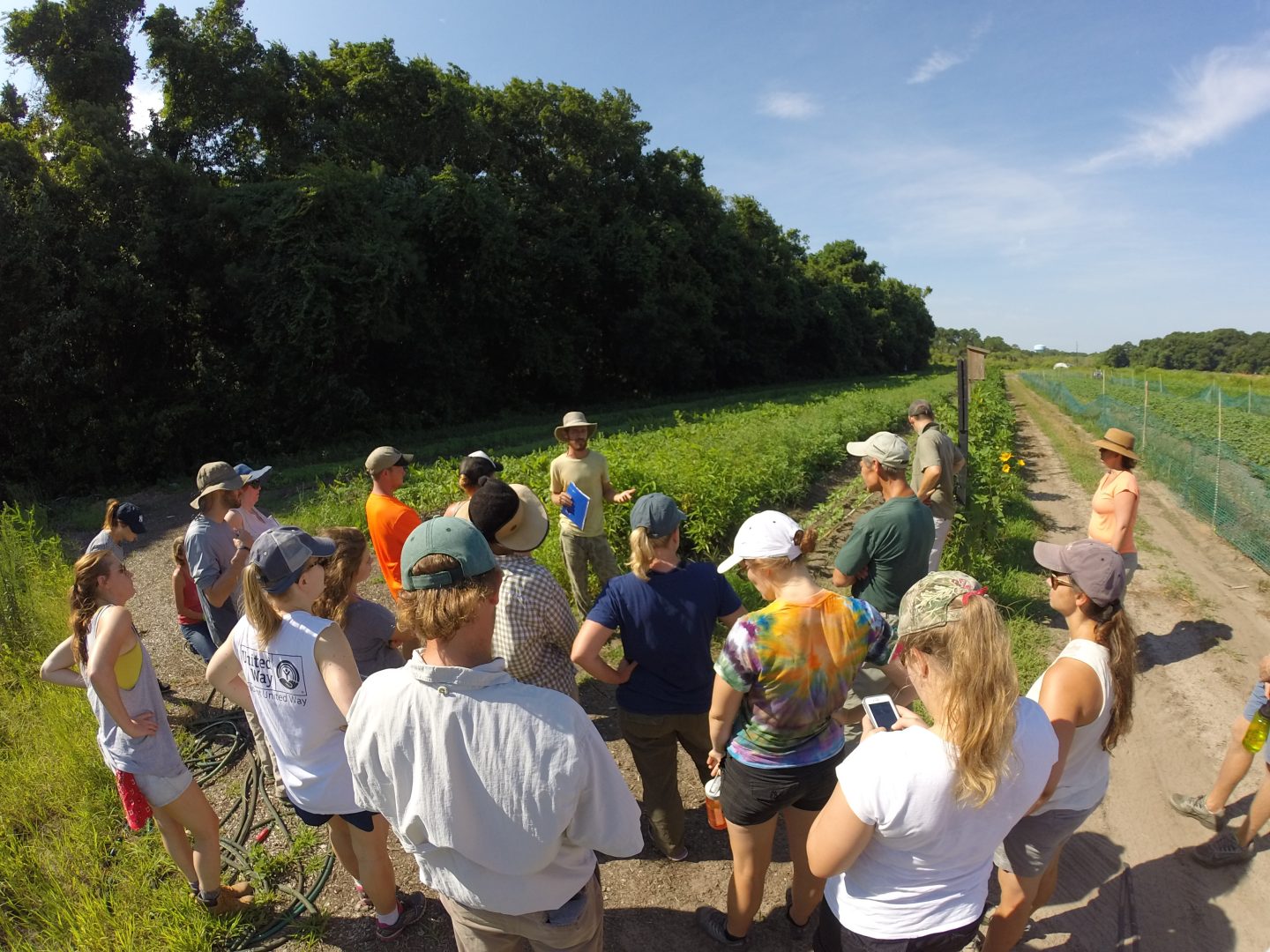By guest author Brian Wheat, the Growing New Farmers Program Manager at Lowcountry Local First, a CFSA member and partner nonprofit.
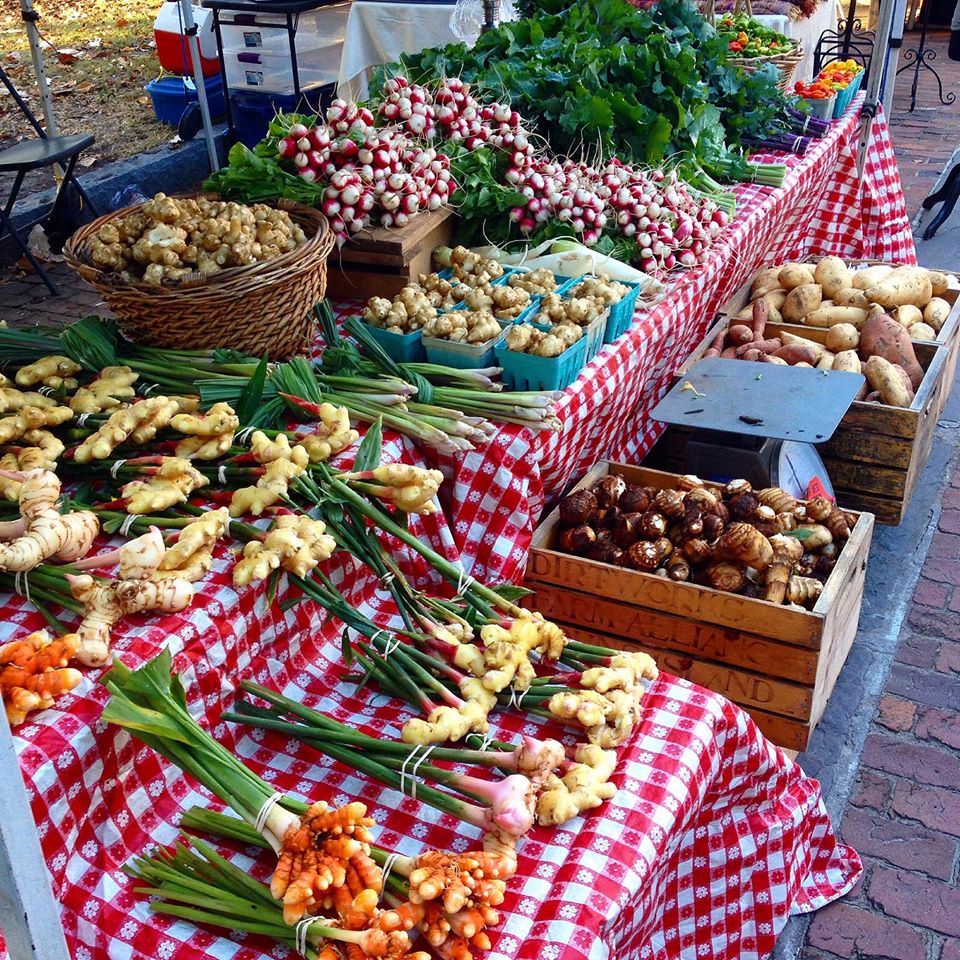
Spade and Clover Gardens at market, photo by Spade and Clover Gardens
The path to farming is looking more and more different than it has in the past. Many people enter the profession citing lifestyle change and value-based career shifts as their primary motivations. As newcomers circumvent the traditional inheritance model of yesteryear they are often faced with challenges in building their experience and accessing quality education.
John Warren has navigated his farming experience through a variety of roles. Living as a sculptor in the Big Apple, he found time to tinker with growing his own food in a small city lot. He soon recognized that his urban plot did not allow him to impact the food system in a way he thought meaningful. A subsequent visit to a farm in the enchanted Pacific Northwest left him feeling physically rejuvenated and reinforced that a lifestyle change was eminent, and that it definitely included serious farming.
John decided to head to Rhode Island where he would spend a short season apprenticing at a small vegetable farm. This experience left him unsatisfied and wanting more.
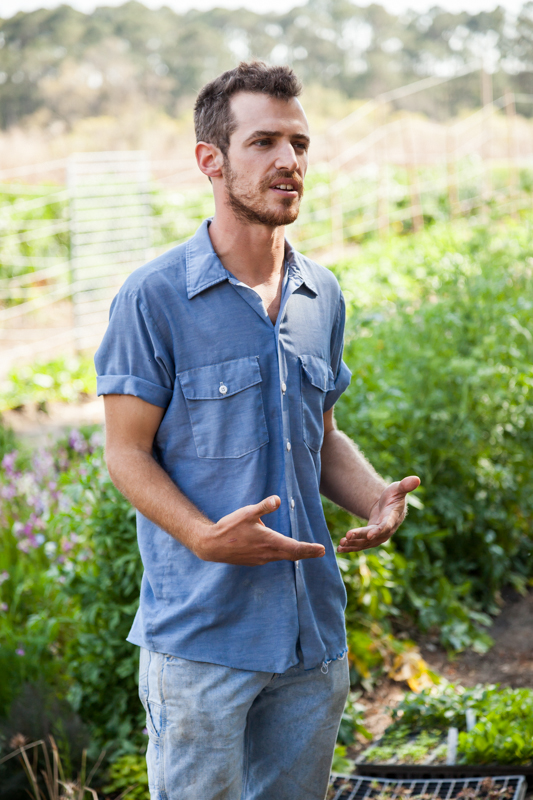
John Warren
“It was supposed to be a mentor experience,” said John. “Once I had gotten through the first three months, our relationship sort of soured. It made me want to do more but made me want to do it myself, made me want to do better, made me want to see something different.”
The crunch of a limited growing season in the Northeast harmonized with a call back to the South for this Columbia, SC native. However, given his last experience he had a new set of requirements for his education. John realized that he needed true mentorship and a work environment that he could flourish in. Barriers to meeting those requirements made his movement forward difficult.
“All of the information I was getting from books and online were from the Pacific Northwest, California, New England, etc. Resources were not as accessible for our Southeast region then.” John found access to hands on work to be limited here as well. “There were less apprenticeships and work opportunities in the Southeast than in the Northeast.”
Finding Place
In 2010, Lowcountry Local First launched the first farmer apprenticeship and farm incubator programs in the state of South Carolina, known as the Growing New Farmers Program. Warren was one of the earliest participants of the program which offers courses in sustainable agriculture along with an apprenticeship option. He cites this as his first true apprentice/mentor experience and, combined with the course offerings, a turning point in his farming career.
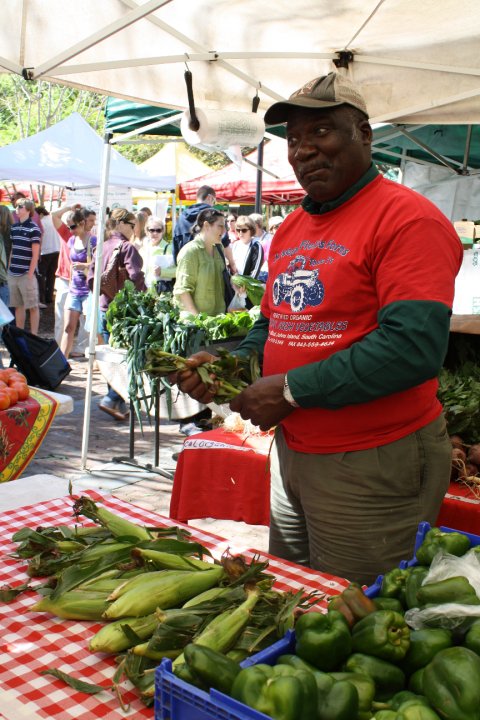
Joseph Fields
Through the program he found himself under the mentorship of Joseph Fields of Joseph Fields Farm, one of two Organic Certified Farms in the Charleston area. It was here that John says he found a community that he identified with and a pace that resonated in an old familiar way. “I think when I saw how easy going Joseph made it seem, I felt like I found the area and community I wanted to be in.” John recognizes that his positive apprenticeship experience relied much on having a comfortable relationship, one that met his unique and individual needs as a new farmer and one where his talents could be identified and fostered. “The thing with Joseph was that his operation was large enough that he would let you explore your area of interest. I got to participate in all aspects of the business, which was different than my previous experience.” Joseph’s encouragement along with opportunities provided by the Growing New Farmers Program soon allowed John to build important relationships in the broader farming community across the Lowcountry.
No Right Way to Farm
“I think I had an idea of what a farm should look like from what I soaked up in the Northeast and [Joseph’s] model was completely different. It just expanded my vision of what a farm could be.”
John reflects on various books and philosophies that he has tucked in the back of his mind, and how they provide lofty visions of perfection. Seeing his mentors contradict his philosophies was frustrating, but he quickly learned that farming must be done in a way that works for each operation. “You can’t just pick it up out of the blue. You also need to have someone tell you why they do it that way.” Each of his mentors forged their own way within the boundaries that their environs, community, and finances provided.
“Once I worked there [Fields] I saw farming through a post-modern type of lens. When I saw Joseph’s farm I realized it doesn’t have to be small scale intensive and cute. It can be some sort of intermediate. It really just needs to be whatever fits the land and the resources right there. I just saw it blown open.” Ultimately, this allowed John to become comfortable with building his own enterprise into something that would work for him.
Picking up the Torch
Currently, John is in the final stages of incubating his farm business, Spade and Clover Gardens, at Dirt Works Incubator Farm on John’s Island, near Charleston, SC. Dirt Works provides support and infrastructure for beginning farm businesses and serves as the Southeastern regional convener for the National Incubator Farmer Training Initiative. It is here that John has seen his role shift from apprentice to farm mentor, one that he embraces happily.
Warren speaks of his new role with enthusiasm. There was a certain sense of an obligation to provide positive interactions as a mentor, given his polarized experiences. During his first year as a mentor John was more focused on having extra help, a practice that many mentors have a hard time growing out of. As time has passed John has had 4 apprentices and has grown as a mentor, as much as he has a farmer.
“I’ve definitely changed the way I want to mentor. I get to know my apprentices more and try to play to their strengths the way Joseph did to mine. Not just getting someone to do what I want them to do but to work with them, see what they are good at, and get them to focus on that.”
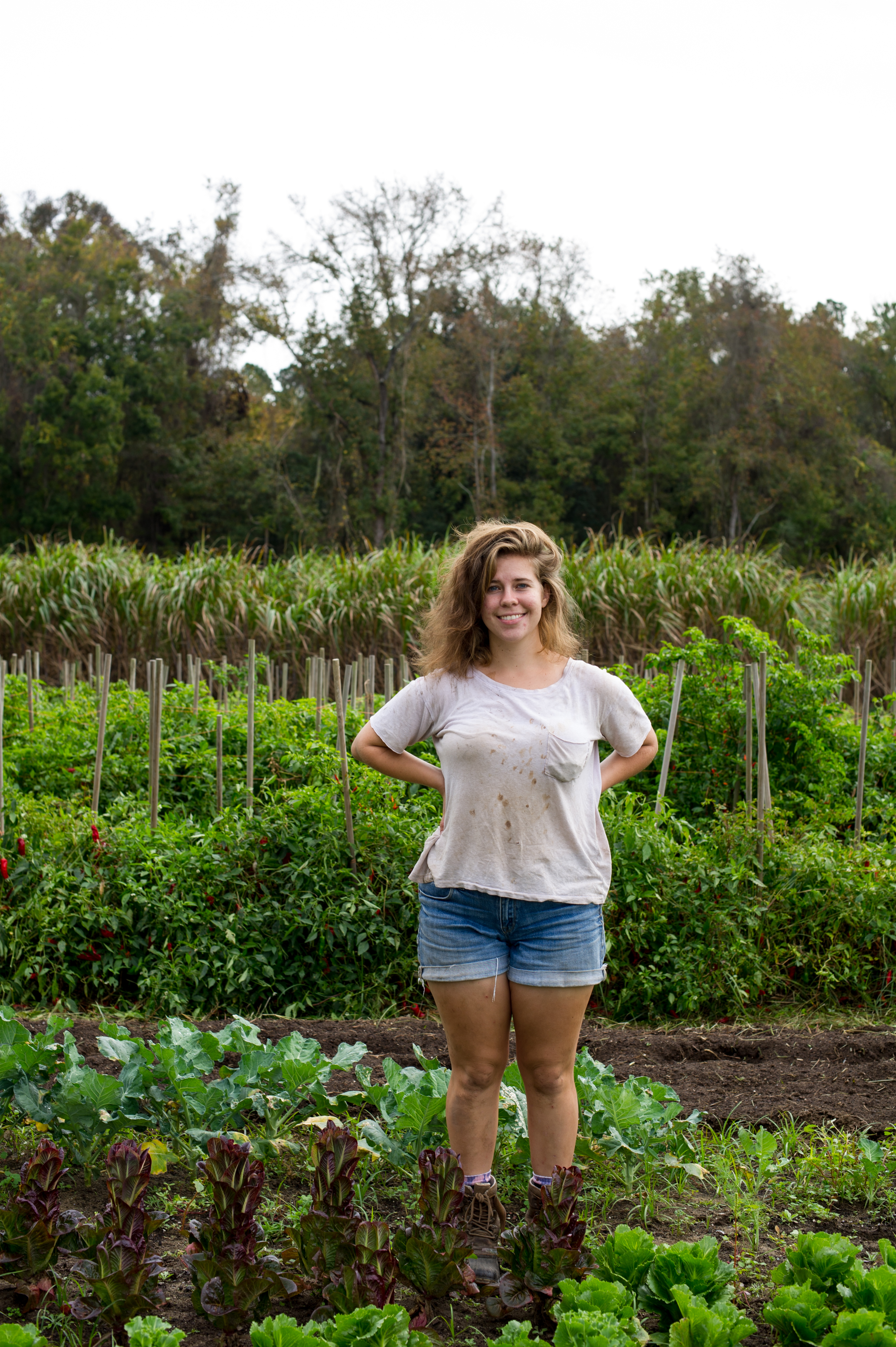
Leah Twillman, photo by Sarah Poe
Leah Twillman, a 2015 graduate of the Growing New Farmers Program and apprentice to John, has become John’s go-to farmer’s market and restaurant liaison. “We definitely collaborate to work on my strengths,” says Leah. “My experience in the food and beverage world turned out to be an asset at the markets and behind the scenes at restaurants.” She echoes what John learned from his apprenticeships, citing networking opportunities, getting the big picture, and being able to choose what practices to integrate in to your own business moving forward. “Being at Dirt Works allows me to see many different styles of farming,” added Twillman. “They’re kind of like artists in the way they each have their own approach.”
Leah’s advice to new farmers seeking mentorship is to start the habit of record keeping early and journal the experience. She also adds that being humble and open minded offers room for growth, a sentiment John can appreciate as well. “There are times I have to ignore my stubborn nature and remember why I am here: to learn,” Leah almost reminds herself as we are talking. Then John recalls an “ah hah!” moment in his apprenticeship. “I remember at points thinking that I knew a better or more appropriate way of doing things and my mentors feeling that energy. Now, I sense the same thing from my apprentices. I can tell that they think they know a better way or that I should be doing it a different way. I try to explain myself and not take it personally. I think back to my experience with that and empathize, try to see what they are seeing and learn with them.”
Past, Present, Future
We must recognize farming as a shared experience and set of knowledge, which is as much to be absorbed as it is to be allowed to flow freely. John Warren is on the path of being a thoughtful farmer and inspiring mentor. Leah Twillman has begun her work towards becoming an experienced farmer and inspired student.
Both are aware of their role as lifetime understudies in the farming profession.
Each of them independently recognizes that their growth and success in that realm is dependent upon a number of factors, including having a solid mentor that helped them utilize their successes, failures, questions, and certainties as their foundation.
When asked who they would each invite out to the farm for an afternoon John replied “my first mentor, so she could see that I can actually do it,” and Leah decided “the kids I nanny.” Both reflect their pride and genuine fulfilment in their craft and evidence the arc through multiple generations that a mentor’s impact can travel.
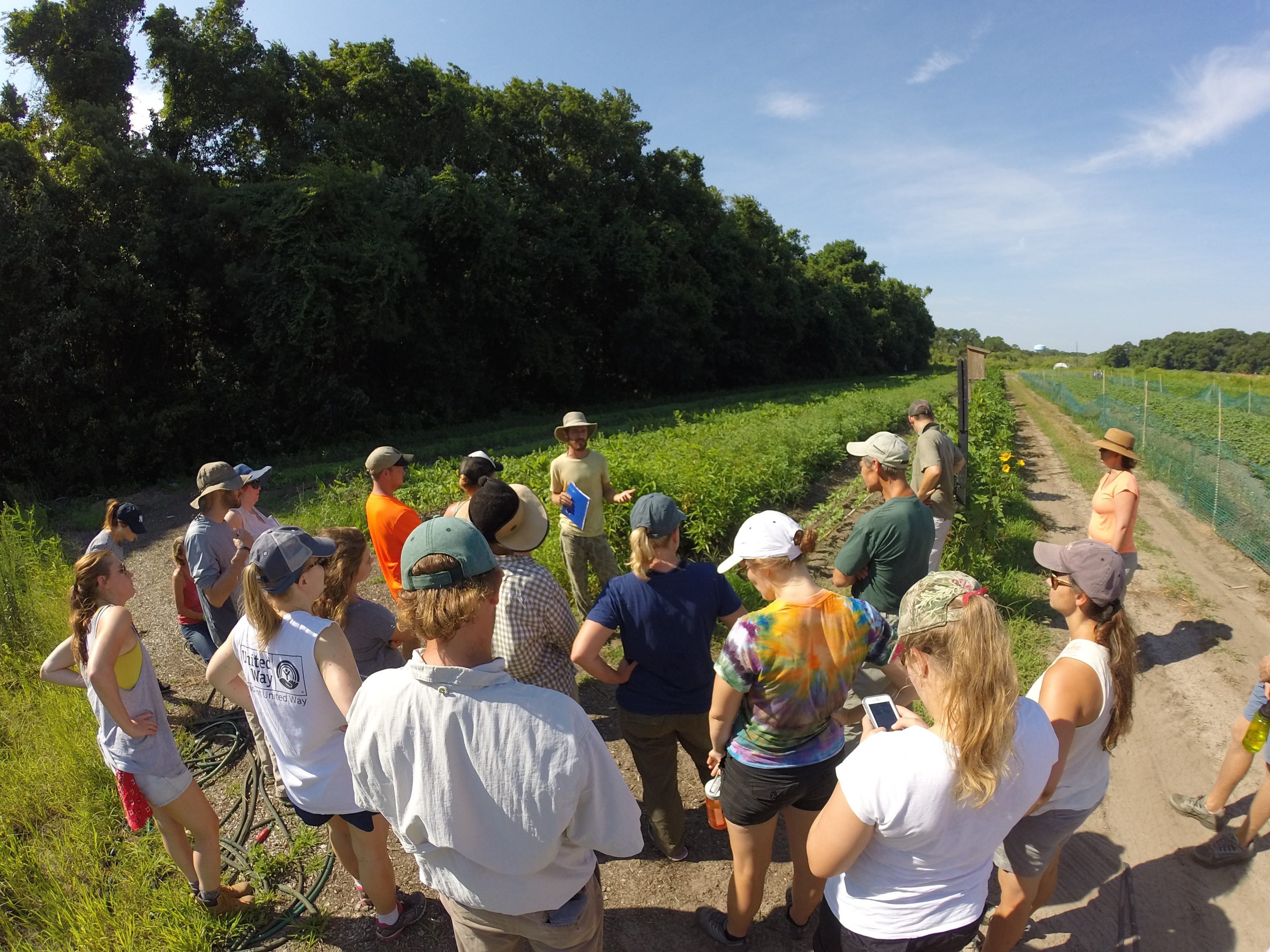
John Warren in Growing New Farmers Program
Lowcountry Local First is currently accepting applications for the 2016 Growing New Farmers Program. Apply Here and contact brian@lowcountrylocalfirst.org for further details.


